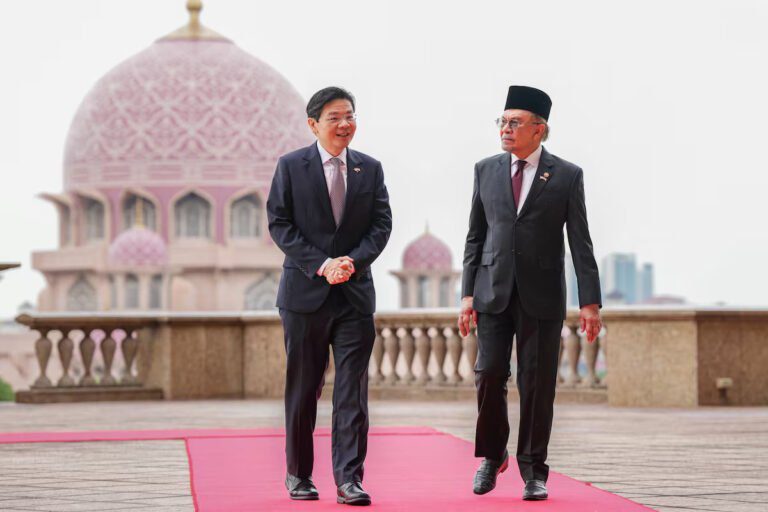On Tuesday, leaders from Malaysia and Singapore formalized a pivotal agreement aimed at establishing a special economic zone designed to attract international investment while facilitating the movement of goods and individuals across their borders. During a press conference following the signing ceremony, Malaysian Prime Minister Anwar Ibrahim characterized the Johor-Singapore special economic zone as a “unique initiative” that leverages the strengths of both nations and enhances their interconnectedness in an increasingly fragmented global landscape. “Rarely do we see two countries collaborate so closely as a cohesive unit,” Anwar articulated. “Our shared strategy centers on mutual assistance, collaboration, and maximizing each other’s capabilities. This shift in mindset is vital; we must prioritize cooperative growth over rivalry and avoid unnecessary conflicts.”
Positioned in Malaysia’s southern Johor state, the special economic zone is set to provide tax incentives and encompass various flagship sectors, including manufacturing, aerospace, tourism, energy, and healthcare. The objective is ambitious: to attract 50 projects within this economic zone over the next five years, thereby generating approximately 20,000 skilled job opportunities.
For Singapore, a global financial center grappling with limited natural resources and land, this initiative represents a significant advantage. Highlighting the importance of their nations’ robust ties, Singaporean Prime Minister Lawrence Wong noted that such collaboration serves as a critical foundation for regional integration. He emphasized Malaysia’s leadership role this year within the 10-member Association of Southeast Asian Nations (ASEAN). “Within the context of ASEAN, our focus extends beyond merely enhancing trade and investment connections. It also encompasses infrastructure initiatives, such as the ASEAN power grid. These promising projects receive our full support, and we are optimistic that Malaysia’s chairmanship will yield significant progress,” Wong stated.
He further remarked, “The real competition we face is not among ourselves within ASEAN but originates from outside our region. Therefore, it is imperative for ASEAN to unify, explore opportunities to enhance our value proposition, and strengthen our competitiveness collectively.”



